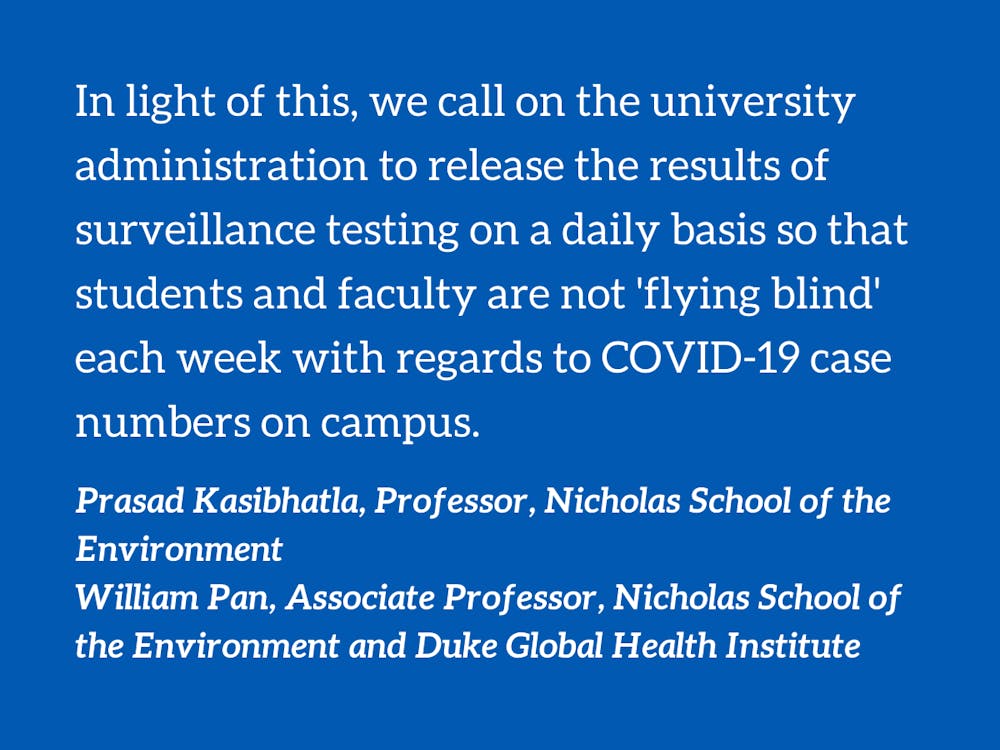The start of the new academic year has once again forced universities across the country to grapple with difficult questions related to campus life in the face of the on-going COVID-19 pandemic. One issue that is central to the mission of any university and that intersects with both student and faculty concerns relates to the risk of COVID-19 infection associated with in-person classes. Duke has sensibly managed this risk over the last year and a half thanks to strict masking protocols, de-densifying classrooms and robust surveillance testing and contact tracing. As a result, there has not been a single confirmed case of transmission in a classroom at Duke over the course of the pandemic.
Nevertheless, students and faculty at Duke continue to have concerns about in-person classes. These concerns, arising despite the fact that more than 90% of faculty and students have been fully vaccinated, are fueled by the ubiquitous spread of the more infectious Delta variant and by the relaxation of some of the COVID-19 risk management protocols that were in place during the last academic year. Of particular concern is anecdotal evidence that suggests a sharp rise in recent COVID-19 case numbers on campus on a time scale that is faster than the weekly interval at which university-wide COVID-19 surveillance testing results are publicly released.
In light of this, we call on the university administration to release the results of surveillance testing on a daily basis so that students and faculty are not 'flying blind' each week with regards to COVID-19 case numbers on campus. We also assume that the university is conducting comprehensive epidemiological modeling, the results of which can shed light on important aspects related to risk of COVID-19 infection in classrooms. A key bit of information in this context is the likelihood that an infectious student and/or faculty member is present in a classroom, given the testing protocols for students and the optional testing requirement for faculty. In this context, we call on the university administration to make public the details of, and the results from, any modeling activities (and from any other methodologies) that are being undertaken to inform COVID-19 risk management on campus.
While we applaud the university administration for their tireless efforts to maximize the safety of the university community, we believe that our specific proposals for enhanced information sharing will allow faculty and students to make more informed decisions with regards to COVID-19 risk management in the context of their unique individual circumstances.
Prasad Kasibhatla, Professor, Nicholas School of the Environment
William Pan, Associate Professor, Nicholas School of the Environment and Duke Global Health Institute
Get The Chronicle straight to your inbox
Signup for our weekly newsletter. Cancel at any time.

